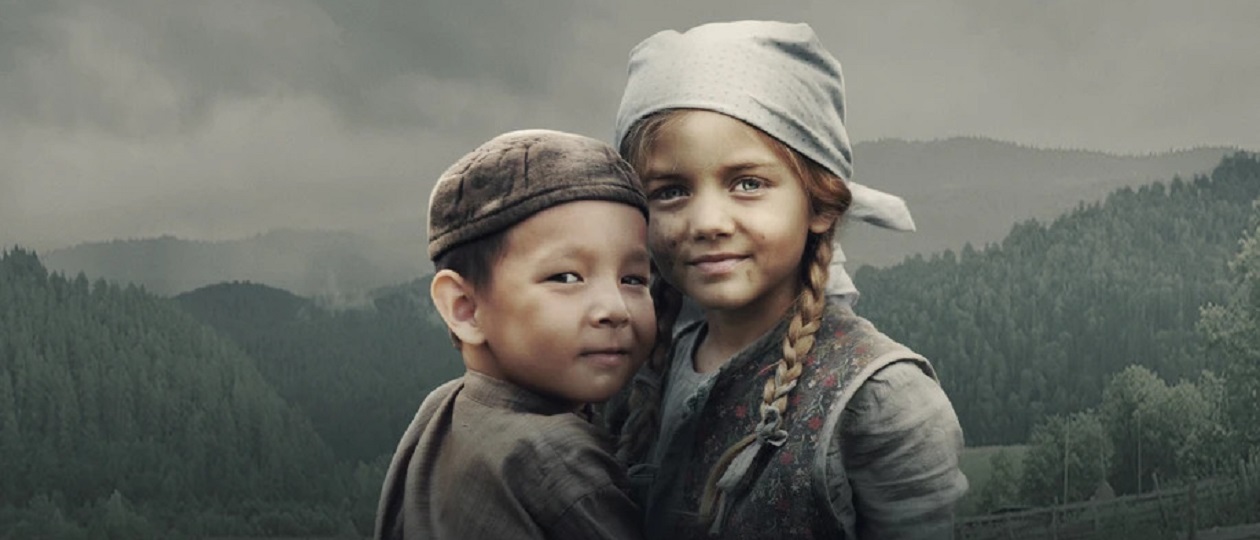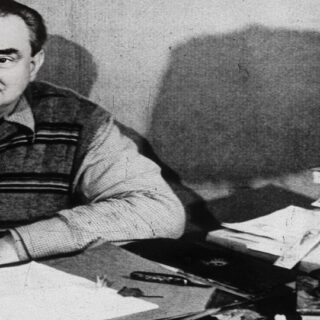
I watched the movie “Sister”. Here, finally, is a film not about evil, but about kindness. Or even like this: about Kindness.
Director Alexander Galibin made his film based on the story of the wonderful Bashkir writer Mustai Karim “The Joy of Our Home”.
The story is quite simple. In a Ukrainian village destroyed by the Nazis, a Red Army soldier finds an orphan girl and sends her to his home village in Bashkiria. On the wall of the hut he writes: “Your daughter…” and we guess that he is writing the address.
There the family — the mother, wife and son of a soldier — accept her as their own and snug her with their warmth, sharing the last meager piece of meal. Gradually, a girl named Oksana comes to life, fear leaves her frightened, war-crippled soul, and she becomes just a child, as she should be at her age.
The boy Yamil, despite his young age, is amazingly mature and responsible, becomes her brother, and his mother becomes her mother too.
This village is located deep in the rear, but we always feel the war that is going on, albeit far away, but still very close. Funerals come to the village, and then crying is heard over the houses, and in those families where the terrible envelope did not arrive, they are constantly waiting, day and night, for their soldiers, their husbands and fathers.
Small village events take place against the backdrop of the main and huge one — the war, which, invisible, is present in every scene, in every dialogue.
There is a scene in the film when the children see live Germans for the first time. These are prisoners who were disembarked from the train taking them to the camp to repair the railway tracks.
It’s lunch time and the prisoners receive their bowl of food. They see children, smile at them and even try to give them food when they see that little ones are hungry. But in response, stones are thrown at them. Children take revenge for their fathers as best they can. The soup spills from the bowl, we see frightened eyes and the emaciated face of a former warrior splashed with soup. The Germans awkwardly dodge until the approaching convoy ends the tough scene.
And we, together with the young heroes, feel at this moment pity for the defeated enemy. And this pity is expensive. Because our people are generous. Great at heart.
And finally the war ends. The villagers celebrate the victory with a party with national dances. They dance furiously, putting into the dance all the tension of recent years, all the joy of waiting for a new happy life. Three children silently watch the dance. They know that their fathers will not return. In their children’s eyes there is adult sadness.
But miracles happen.
Soldier Petro finds his daughter Oksana and leaves with her for his native Ukraine to rebuild his destroyed home and ruined life.
The scene of the farewell feast, when the entire Bashkir village gathers around a sparsely laid table to see off their Ukrainian daughter, is full of high symbolism. This is the kind of country we had. And have we really lost it completely?
And in the finale, Yamil’s father, who was considered dead, returns. The boy and his mother so wanted to believe in a miracle — and then it happened. Happy, wonderful ending.
The film was shot very simply, without a hint of computer special effects.
At the same time, the camera in the hands of cameraman Mikhail Agranovich amazes with its ability to capture wide panoramas of beautiful views and at the same time focus on the smallest details. And the director’s brilliant work, like a magic lantern, illuminated for us the corners of children’s souls wounded by the war.
The precise and vivid acting is amazing, especially the young performers of the two main roles — Arslan Krymchurin and Marta Timofeeva. If we have already seen the girl in many films (she, according to Wikipedia, is a real mega-star), then for the boy this film is the debut. Talented children showed a high, mature, meaningful performing level. And I would say that the boy was even a little more believable. However, a good director does not have bad actors.
There are no overfed NKVD officers in the film, no reflective traitors, no rapes and other attributes of modern cinema, but come on, you watch it in one breath. I am sure that the viewer wiped away a tear more than once and laughed happily. Because this movie was made with skill, and, most importantly, with love.
And one more amazing detail: almost the entire film the characters speak Bashkir. As befits the Bashkirs. There are only a few Russian words in it. And the Ukrainian Petro speaks Ukrainian. Here’s a compote. And this does not interfere at all, but, on the contrary, is perceived as a natural and only correct directorial move.
I would compare this film with the best films about the war made by Soviet filmmakers. In any case, after everything that was thrown at us for the anniversary of the Great Victory, the picture is perceived as a breath of fresh air.
P.S. While I was watching, I couldn’t help comparing it with Zuleiha, who rattled like an empty bucket. The parallels are obvious. There are Tatars, there are Bashkirs. Close enough. The language is practically the same. The time is approximately the same. The events are different, but both here and there are extreme.
But what a different look! After the Tatar ghouls from the fantasies of Ms. Yakhina and the filmmakers who joined her, it is so gratifying to see good people who are persistent in their kindness. Bashkirs, Russians, Ukrainians, and even beaten Germans, causing disgusting pity. A defeated enemy can and should be pitied, but it will not be the snotty pity, but the generosity of a great people who know how to forgive a defeated and repentant enemy.
In one word, people. Good, bad, but — people. And not monsters invented by a sick brain.





